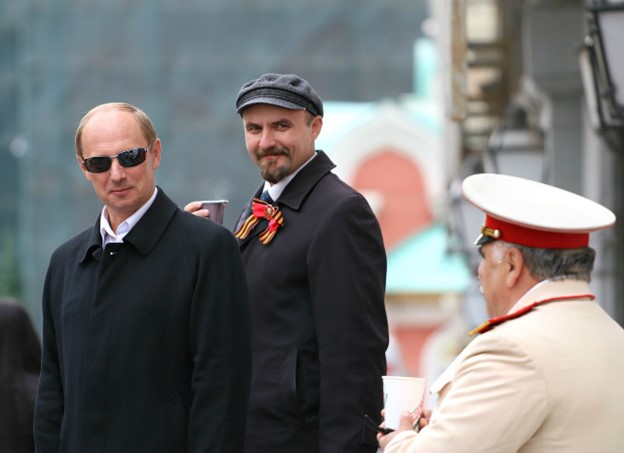Russian President Vladimir Putin is playing a multilayered game entrapping many of his country’s youth groups in a growing militarization sweeping across the nation. These Kremlin-sponsored paramilitary groups appear ready to assume a more active role in Russian politics this spring under the strict guidance of the state. Last year the Russian government allocated 19 billion rubles (about $204.8 million) for one youth organization alone, with 10 billion rubles allocated to developing the movement throughout Russia’s regions and 4 billion rubles to the central party apparatus.
It is not the first time a “cult of personality” was employed to build support for a Russian leader. Just over one hundred years ago the “Young Pioneers,” a Soviet youth group, was founded under Lenin’s rule. By 1924 it counted 161,000 among its ranks. In the five decades after its formation the “Vladimir Lenin All-Union Pioneer Organization” amassed a following of over 25 million. Under Putin, its main successor is known as the “Movement of the First” (MOF) group. It claims June 22, 2022, the hundredth anniversary of the Young Pioneers, as its date of formation.
The MOF is fully-funded and considered more radicalized than earlier Leninist organizations. Despite Kremlin claims reported in Kommersant.ru, that the group’s goal is to simply help foster creativity among today’s young Russians, there are indications MOF is working to help restore the Soviet Union to its former glory and, eventually, to help expand it to include areas once recognized as part of the Russian Empire. Last week on March 18, Russian citizens, including MOF and members of other similar youth groups, gathered in Red Square to celebrate Putin’s re-election victory with “aggressive chants” heard among a “sea of young, smiling faces, reflecting the growing militarization of Russian culture,” says Richard Arnold in a March 25 Eurasian Daily Monitor article. The tagline on MOF’s website calls its members “pioneers of the motherland.” The movement’s self-proclaimed values are “to be with Russia, to be human, to be together, to be on the move, to be first” and familiar platitudes to “strong families” and “service to the Fatherland,” he adds.
The MOF and other separate youth structures, such as Yunarmia (Youth Army) and the Russian Union of School Children, replicate Russia’s management of paramilitary groups with some military analysts suggesting they provide a confusing and layered picture with potentially divided loyalties among Russian citizens. MOF is the “tip of the spear” according to one Russia watcher, who points out that Putin gives them special attention at rallies in Moscow. TASS says that at the MOF’s Congress in Moscow in early February, Putin greeted the 3,000 MOF delegates and at the closing ceremony declared the group is almost five million strong and “That’s a huge army!”
MOF’s size will continue to grow, according to Arnold. It already has a council in every region of the Russian Federation, including occupied areas of Ukraine. Like its forerunner, the Young Pioneers, today’s Russian youth blur the line between practicing soft skills that can help them on the battlefield, as well as in everyday life. They restore national war memorials, run marathons and other physical competitions, and learn first aid skills. “Another more blatantly militarist action began in February in anticipation of the 79th Victory Day, Russia’s annual celebration of Nazi Germany’s defeat,” says Arnold. The MOF created an event called “Victory Classic.” It aims to institutionalize military historical memory, promote “respect for the Motherland,” and ensure “the safeguarding of traditions” among various youth groups. It is enlarging the event that was held in 2023. By building inter-group connections, the Kremlin is creating an intricate web of organizations rather than replacing structures. Putin appears to be replicating the proliferation of similar groups in paramilitary groups in other fascist systems found throughout history.
“It seems that the Movement of the First is here to stay and will socialize an angrier, more militant generation,” argues Arnold. What remains uncertain is the response of these various groups should there be increased political conflict among the leadership in Moscow. In a crisis, Russian youth may present a challenge as groups divide their loyalties among different political leaders. Although strong now, MOF and other youth groups may present a serious challenge to Putin and other Russian leaders in the future.
Daria Novak served in the U.S. State Department
